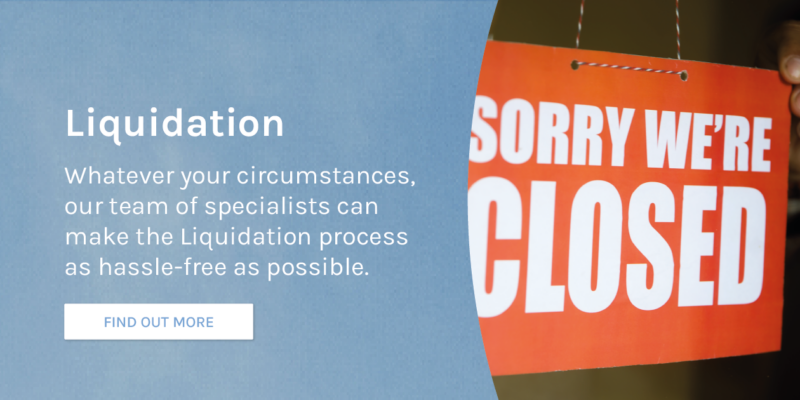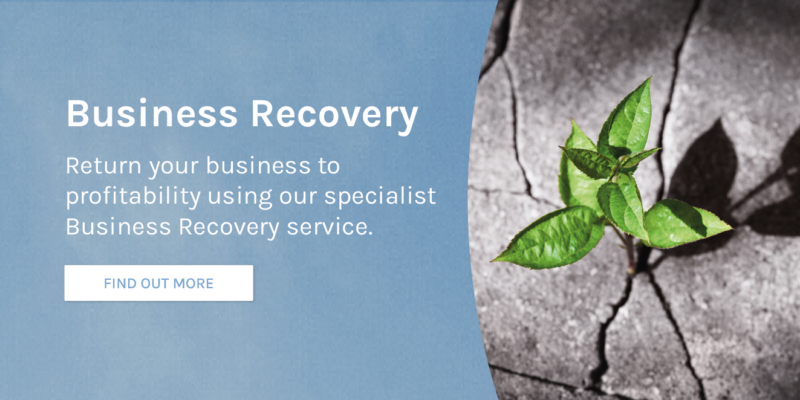There may come a time within the lifespan of a business where it’s necessary to close it down. This could be because the owner wishes to retire, has no more use for the firm, or because the company is struggling with debt.
Dissolving, or striking off, your business is just one option available to you as a director — though it’s only viable in certain circumstances. So what is company dissolution, when can you do it, and how do you go about it? Read on as we’ll provide all the answers.
What is the Dissolution of a Company?
Dissolution involves a limited company being removed from the Companies House register, meaning it stops being a separate entity in the eyes of the law and can no longer trade. It is often a voluntary process initiated by the firm’s directors and is viewed as one of the most straightforward ways to close down a business that’s no longer wanted.
When answering the question ‘what is company dissolution‘, it’s important to note that a dissolved company can still be subject to investigations by HMRC, or other legal challenges. You will also need to ensure that you follow all requirements when closing down your firm, or you could face consequences further down the line.
Why Would You Dissolve a Company?
There are a multitude of reasons why you would want to dissolve a company. These range from it no longer being required, to re-registering the firm in a different jurisdiction. A business can also be dissolved involuntarily by Companies House if the registrar believes it is not carrying out its operations effectively.
Let’s take a look at the most common reasons to dissolve a business in more detail:
6 Main Reasons for Voluntary Dissolution
Essentially, a business will be dissolved if it is no longer required or viable in its current state. This could be because:
- The company never started trading and has no plans to
- Its owner wants to retire and is unable to find anyone to take on the firm
- To change the company’s legal structure (such as to a partnership)
- The owner no longer wants to run the business and is looking for a new challenge
- Missing an accounting deadline. A director may decide to do this instead of paying a fine
- Re-registering the firm in a different jurisdiction. For example, changing the country of incorporation from England to Scotland
Common Causes of Involuntary Dissolution
In a minority of cases, a company may be dissolved by Companies House, rather than at the behest of its owners. The main reasons for this are:
- The company no longer has any directors
- Official mail sent by Companies House to the firm’s registered address has been returned undelivered
- The business has failed to keep up to date with obligations such as filing tax returns, annual accounts, or confirmation statements
Can I Dissolve My Company?
There are certain criteria you must be able to adhere to if you wish to dissolve your company. If you don’t meet them, you will have to explore alternative avenues such as liquidation. To find out which option is best for your circumstances, it’s a good idea to speak to a specialist business advisor.
You are only able to dissolve your company if:
- It has not traded or sold any goods within the last three months
- You have not changed your company’s name within the last three months
- There are no ongoing legal proceedings against your firm
- Your business is not under threat of liquidation
- You are not under any type of formal payment agreement, such as a Company Voluntary Arrangement (CVA)
If you’re not able to satisfy all of these obligations, company dissolution will not be a valid option for you. If you still wish to close down your business, you may be able to liquidate it instead.
Can You Dissolve a Company with Debt?
Although dissolving a company is usually an option for solvent businesses, it may be possible as long as you can settle your debts within 12 months. You must notify your creditors of your plans, and they may still try to block you. If you can’t pay off what you owe within a year, liquidation will become your best case scenario.
If you do want to dissolve a company with debt, you’ll need to sign a ‘declaration of solvency’ that locks you into the 12-month repayment deadline. Your creditors will still be able to submit an objection to your plans, which could derail the process for between three-to-six months — giving them plenty of time to take action against you.
Even if you do manage to dissolve your insolvent company, your creditors can apply to Companies House to have your business reinstated. They will then be able to chase your firm for payment and potentially force you into compulsory liquidation.
How to Dissolve a Company in the UK
Company dissolution involves notifying Companies House of your intention to close down your business and, provided you satisfy all of the criteria, having them strike your firm off their register. However, the process actually begins before this point, as there are a few initial steps you will need to go through.
Here’s how to dissolve a company in the UK:
Stop Trading
Your first step on the path of company dissolution is to complete all work that’s being carried out, collect any monies owing to you, and cease business activities. Remember that you’re unable to dissolve your firm until you have not traded for a period of at least three months.
At this point, you should also inform all of the stakeholders in your business about your intentions to dissolve. This includes clients, suppliers, employees, creditors, and any shareholders.
Sell Off Assets
Ownership of any assets your company has will automatically be transferred to the Crown when you dissolve your firm. As a result, it’s important to liquidate them as soon as possible, so you can make the most of their value.
Repay Debts
Using the proceeds of selling off your assets, or any cash reserves you may have, your next task is to settle your outstanding debts with creditors. Trying to circumvent this could lead to your creditors objecting to the dissolution, prompting the entire process to come to a halt.
Settle Final Obligations
At this point, you have a few final loose ends to tie up before you can strike off your company. The first is to pay your employees their last wages, following the strict rules of redundancy as you do so. Next, you’ll need to file your statutory accounts with HMRC and state they will be your final ones due to company dissolution. You then should submit your tax return, pay what’s owed, deregister for VAT, and close your payroll scheme.
Once all this has been done, you should end all ongoing contracts, such as utilities, and close your company bank account.
Submit Strike-Off Application
You’ve now finally arrived at the point where you can ask Companies House to strike off your firm. To do this, you’ll need to submit a DS01 form either online or by post, and pay the required fee. Assuming this has been filled out correctly, a notice will be advertised in the Gazette to announce your decision to dissolve the business.
At this stage, you will have seven days to inform any remaining interested parties that your company will be dissolved imminently.
Your Company is Dissolved
Provided there are no objections to the announcement in the Gazette, your business will be dissolved two months after the notice was served. A second announcement will be made in the Gazette to confirm your company has been struck off.
Specialist Support with Company Dissolution
If you’ve been wondering what is company dissolution, the chances are that you’re ready to close down your firm. Doing so, however, requires tailored advice from a firm with expert knowledge of the processes involved.
The Inquesta team specialise in all areas of company closure, liquidation, and business recovery — enabling us to provide in-depth support tailored to your exact requirements. We’ll take the time to understand your circumstances and goals, before recommending what we believe is the best solution for you. This may even be recommending an alternative to dissolving your company, such as a Members’ Voluntary Liquidation (MVL), that could end up being a more cost-effective and tax-efficient way of closing the business.
Whatever you need, Inquesta has the skills needed to ensure success. To find out more, get in touch with us today.




